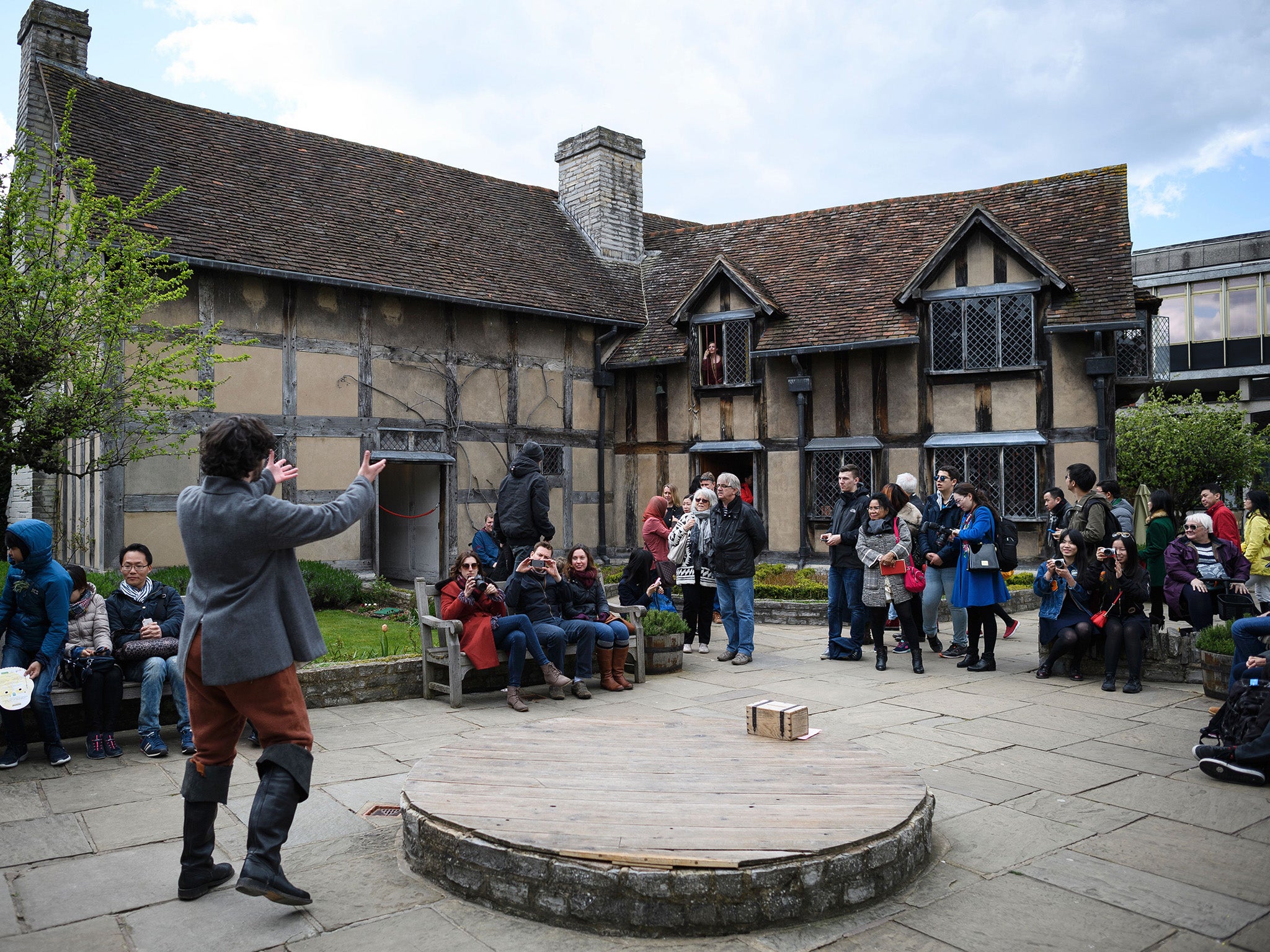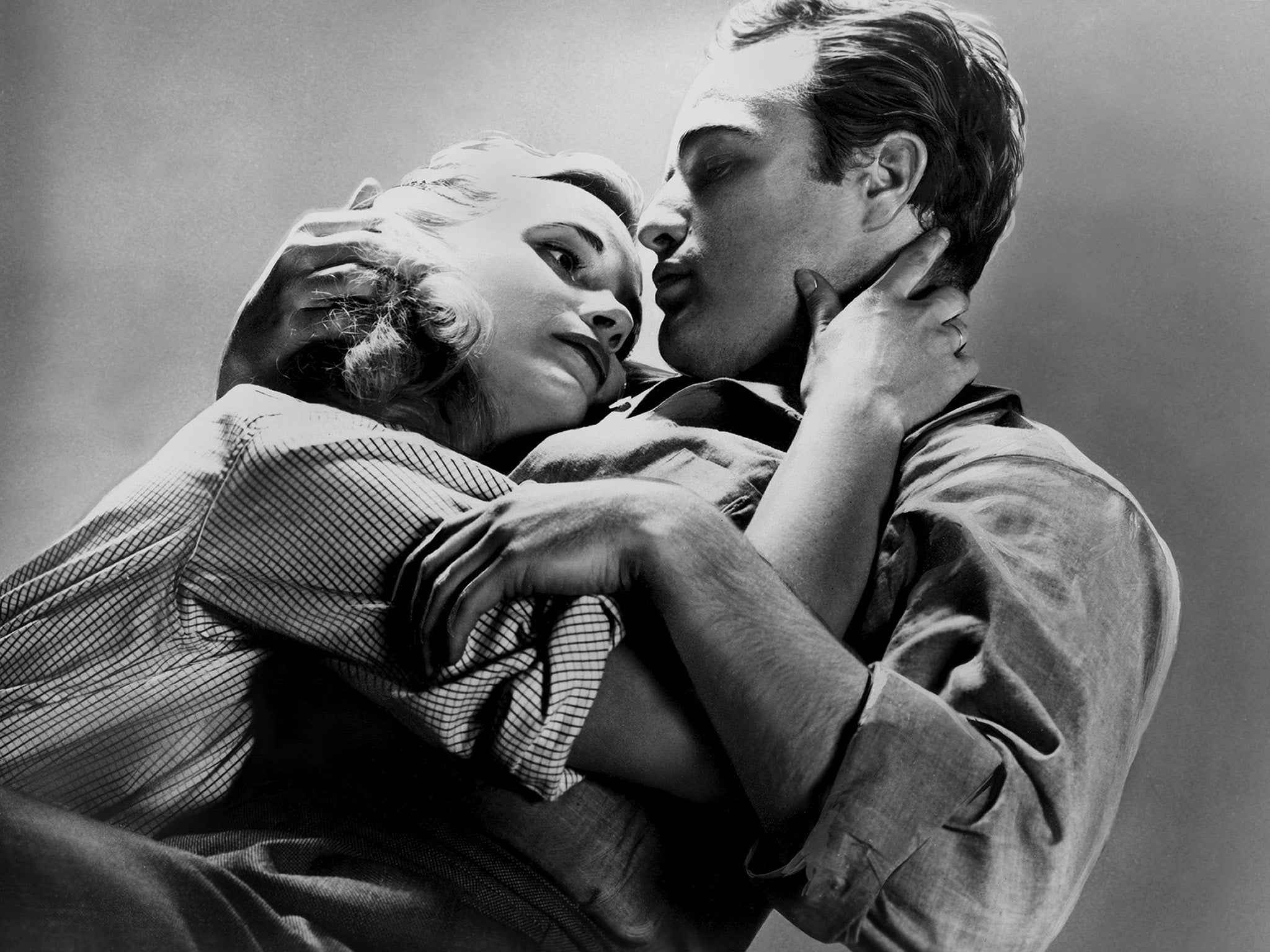A word in your ear: The art of making ourselves heard
The fact is that we judge people on their voice. We can’t help it. It can go in your ear like honey – or like broken glass. Andy Martin heads to Shakespeare country for some vocal delivery pointers

Your support helps us to tell the story
From reproductive rights to climate change to Big Tech, The Independent is on the ground when the story is developing. Whether it's investigating the financials of Elon Musk's pro-Trump PAC or producing our latest documentary, 'The A Word', which shines a light on the American women fighting for reproductive rights, we know how important it is to parse out the facts from the messaging.
At such a critical moment in US history, we need reporters on the ground. Your donation allows us to keep sending journalists to speak to both sides of the story.
The Independent is trusted by Americans across the entire political spectrum. And unlike many other quality news outlets, we choose not to lock Americans out of our reporting and analysis with paywalls. We believe quality journalism should be available to everyone, paid for by those who can afford it.
Your support makes all the difference.I fell in love with the girl on the train. When I was 17. I used to see her every morning. The same train. The same carriage. For months we looked at one another, longingly, wordlessly. She was the one. I was sure it was mutual. I finally plucked up the courage to speak to her. And the way she spoke to me completely killed every particle of passion I felt for her in a nano-second. It was something about the tone. Or the timbre. Or the intonation or accent. Which grated on my very soul. The fact that she said (in our Minister of Defence’s immortal phrase), “Go away and shut up”, or words to that effect, was strictly secondary.
The advice to shut up from someone holding the floor dramatises the paradox we are now faced with. In an age of maximum noise, we are retreating or being forced into silence. Obviously this is not a society of Trappist monks. It’s hard to move without a perpetual soundtrack of Ed Sheeran and people rabbiting into their phones. “A tale told by an idiot, full of sound and fury, signifying nothing” is more than ever an apt summary of life. But it is therefore harder than ever to be heard above all the noise.
We’ve all been there: someone who never shuts up at meetings and you can’t get a word in edgewise. Or who constantly interrupts you when you’re trying to tell a story. Usually just before the punchline.
There is a silent majority of people suffering linguistic oppression. The most audible of inequalities. They are on the receiving end of a conversation. In a very literal, physical way, voices are being lost or at least squeezed.
There is a double bind at work. On the one hand, the law of symbolic capital entails that a small number of people tend to monopolise and command attention. Parents, bosses, husbands (or wives), they’re all guilty. Maybe you want to press their mute button but you can’t. You can speak, but can you get anyone to listen to you? On the other hand, as Derrida put it so dramatically, there is nothing beyond the text. After one or two hundred thousand years of talking to one another, we now resort to the keyboard and the screen. It’s the apocalypse of the oral. Maybe it’s easier that way. No eye contact. No contact at all. The verbal equivalent of safe sex. No risk of viruses, other than the virtual kind.
I think it’s time to level the playing field. Not to give someone a “voice” in the diluted, metaphorical sense, but to take the voice seriously again. How to speak. How to project and hit the back of the hall. How to make everybody else pipe down for a while and listen to you again. I heard recently from a hire-and-fire guy that he was now getting job applications in abbreviated “txt” speak. People may be forgetting how to write in sentences. And they are also forgetting how to speak clearly and persuasively. How are you ever going to give a decent job interview if you can’t get your point across? How can you seduce anyone? Or make friends?
The fact is that we judge people on their voice. We can’t help it. It can go in your ear like honey – or like broken glass. Every speech act is music first and substantive proposition second. As McLuhan said, the medium is the message, which translates out as: the sound of your voice is more important than any possible truth-value. Actors know this. It’s not about how you look, it’s how you sound. So I went to Stratford-upon-Avon and the Royal Shakespeare Company to speak (but mainly listen) to the “Head of Voice”.

There really is a Head of Voice. Her name is Kate Godfrey. And she has a sidekick in the shape of Cathleen McCarron, who is an Royal Shakespeare Company “voice coach”. They both have great voices, Godfrey’s more home counties, McCarron’s more Highland fling. And this is one thing they both insist on, and it’s an integral part of the RSC ethos: there is no “correct” voice, all voices are good. Potentially. Variety is crucial. Imagine a play where everyone sounds the same – it would be a disaster. But the thing that struck me is that each of them can speak in different voices. Actually they could both be great impressionists. But even if you can’t operate at that level, you have to be able to adapt the voice to different purposes. “You don’t want to boom across the dinner table”, as Godfrey put it.
The reality is most of us stick a sock in it too soon. I was thrown out of the school choir aged eight on account of being too loud (and tuneless). Thus aborting a promising musical career. But something like that affects nearly everyone. “Think of babies,” said McCarron. She simulated a baby perfectly. “They are unfettered. There is no filter between what the baby wants and how it expresses it. The voice of a three-year-old is beautifully expressive. But then it starts at school, the self-suppression and clamping down, which creates tensions.” Doubts creep in, you lose trust in yourself. We are born free and find ourselves in chains, orally speaking. Only by a heroic effort decades later can you get that back again, unlearn the conventions, and recover the original spontaneity and freedom.
And another great thing has been lost, or is on the verge of being extinguished. Metaphor, or – in the terms of the ancient discipline of rhetoric – the art of the “trope”. Godfrey and McCarron spend much of their time working with actors to understand complex imagery. Because imagery is being displaced by the image. In The Duchess of Malfi, McCarron recalls, we have “He and his brother are like plum-trees that grow crooked over standing pools; they are rich, and o’erladen with fruit, but none but crows, pies, and caterpillars feed on them.” Now it’s, “Oi, what do those two blokes look like? Hold on a sec while I pull out my phone and show you.” “No one knows what a plum tree looks like any more.”
Godfrey was working on Romeo and Juliet recently. A bird sings. Juliet says, “It was the nightingale and not the lark”, ie, don’t go yet. No, says Romeo, “it was the lark and not the nightingale”, ie, it’s dawn and I’d better shove off. But, says Godfrey, “No one knows what the lark and nightingale sound like any more. So we brought in recordings of the two different birds, so they could tell the difference.” She says that “we are losing touch with the physical world”, and the original ground of meaning is lost.
You can change your voice, but it’s not about elocution, like Eliza Dolittle, or, for that matter, Margaret Thatcher. Thatcher started out with a relatively high-pitched voice. Voice architects reconstructed and renovated, brought down the pitch, gave it a bit of Lauren Bacall. “They made it more pharyngeal,” says Godfrey. “More of a masculine sound, from the neck. On its own it’s not good. It’s like a cartoon – two-dimensional.” It lacked resonance. Godfrey and McCarron compare the work of the voice coach to that of a sound mixer. If you want to “make it real”, you have to mix up the sounds, get the balance between bass and treble.
Stanislavsky has had a catastrophic effect on the voice. Marlon Brando took over the “method” and turned it into an inspired, emotive croak. “I coulda been a contender, I coulda been somebody” (On the Waterfront). But at least you could understand that. Now “naturalism” in TV and film is equated with incomprehensible mumbling. Hence we have a Poldark in which viewers complain that they can’t make out what anyone is saying any more. Maybe only foreigners speak English with any degree of clarity. Think of Abba for example: clear as a bell. Conversely the typical American television detective is a descendant of Kojak, who invariably had a lollipop in his mouth.
The trick is taking the lollipop out. Finally. It sounds simple enough. The Royal Academy of Dramatic Art once had a threefold mantra: Think. Breathe. Speak. Maybe they still do. But each of those three monosyllables is huge. I had to speak to Barbara Houseman. I had read her two classic works, Finding Your Voice and Tackling the Text (& Subtext). I knew all about “sympathetic vibrations” and “strong intentions” and “convergence”. “You have to want the want with your knees… want the want with your elbows… want the want with your buttocks…” I knew I had to speak from the diaphragm (the floor the lungs sit on). And this seems like madness but it works: practice on a chair first – ie, actually talking to the chair – or some other inanimate object. If you can get through to the chair, you can do anything.

But I needed to hear her voice too. She turns people like Kenneth Branagh, Daniel Radcliffe and Jude Law “into the vocal equivalent of a Stradivarius or a Steinway”. But she also mentors managers who don’t know how to speak to people without yelling at them or giving orders like a crackpot dictator. She has enabled a woman with cerebral palsy to become a public figure. Recovering torture victims sing her praises too: “In prison I was voiceless”, writes one on the Freedom from Torture blog. “After the workshop this is what I know. You have the power to change your life.” But there are subtle forms of coercion too. Houseman argues that in a patriarchal culture, girls are more controlled than boys growing up. “We’re brought up to please,” she says. “Do you ever hear a boy being called ‘bossy’?”
Barbara Houseman also reminded me of one very important part of the art of speaking: listening. You have to learn to really listen to other people. “And,” she adds, “you have to listen to yourself too, and listen to your own reactions to others.” Sometimes we can speak too much, or “speak to hide”. We tend to shut people down because what they say challenges our world view, or because we fear they may be better than us. They probably are. The best speakers, paradoxically, don’t have to say anything. They choose their moment.
I couldn’t get in to Macbeth, it was sold out. So I went to the bar in the Swan Theatre on the banks of the Avon instead and heard the most resonant, effortless, engaging voice in all of Stratford saying, “Do you want your Americano black or with milk?” Jonsel Gaukan, who looks a bit like the young Keanu Reeves, is a barista. But he also has a one-man show, Keep Calm I’m Only Diabetic (“the first show to be based on diabetes”) that has sold out in London, Brighton and Manchester. And he has the simplest advice of all. “It’s not about shouting – if you’re shouting you’ve already lost. You have to believe in yourself. You have to have presence, even if you’re just ordering at the bar.” And the key to getting yourself a beer amid the heaving throng?
“If your shoulders are slumped and you’re looking down – no one can hear what you’re saying. It’s all about holding your head up high, no matter what. That works wonders.”
Andy Martin is the author of ‘Reacher Said Nothing: Lee Child and the Making of Make Me’ and teaches at the University of Cambridge.
Join our commenting forum
Join thought-provoking conversations, follow other Independent readers and see their replies
Comments